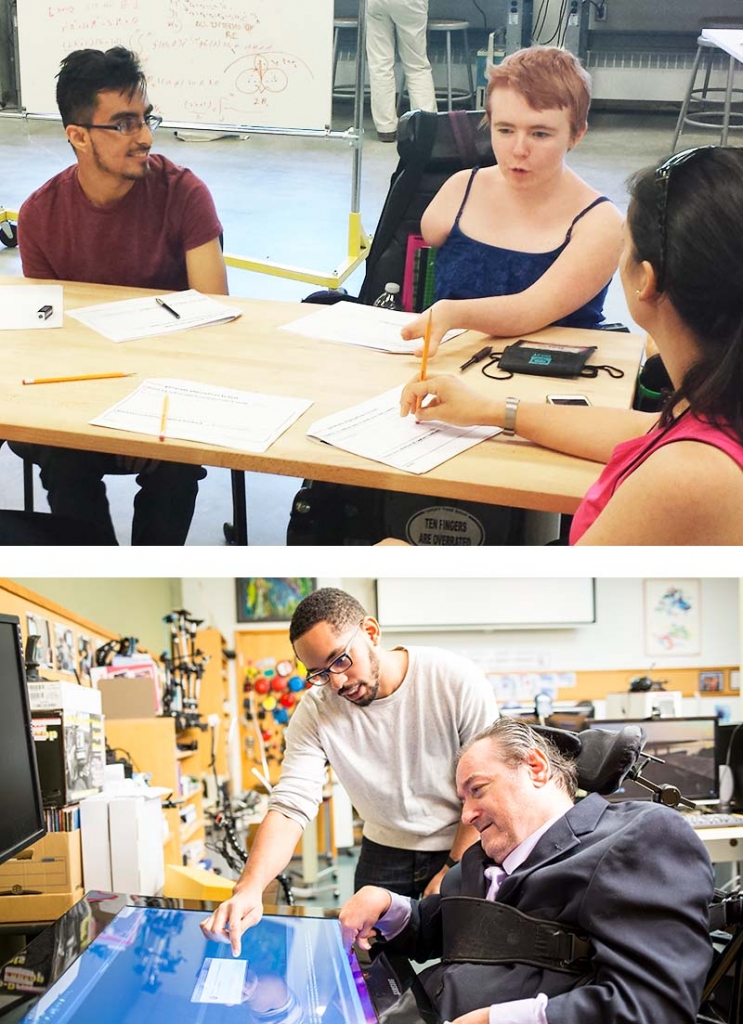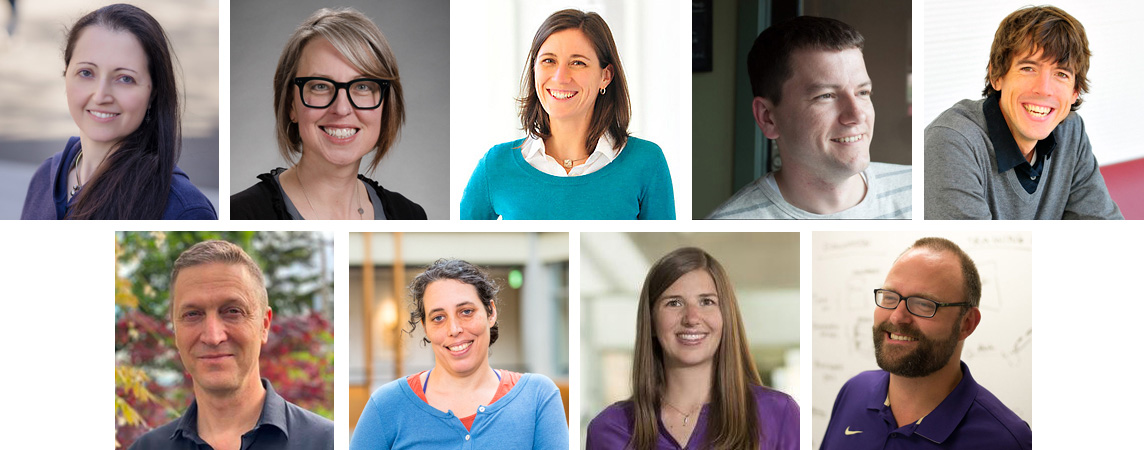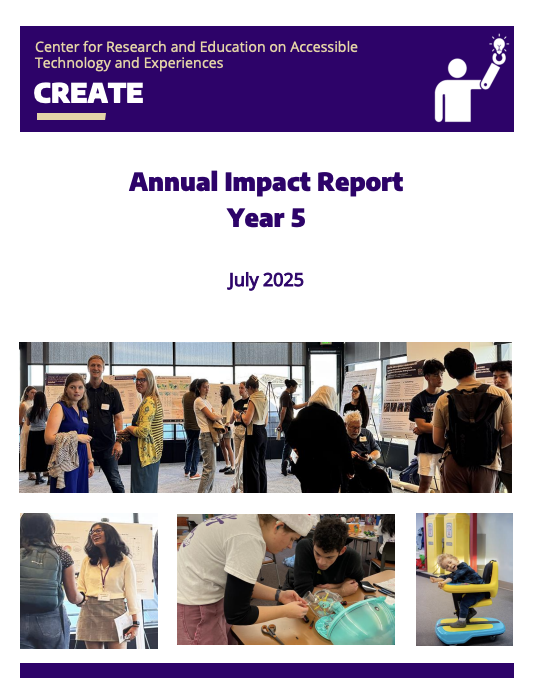CREATE is the Center for Research and Education on Accessible Technology and Experiences. Our mission is to make technology accessible and to make the world accessible through technology.
The need for greater access

A core mantra of the disability movement is “Nothing about us without us,” yet technical advances often assume a certain set of abilities, limit customizability, and fail to include people with disabilities as creators of technology.
The major challenges of creating accessible technology and of making the world accessible through technology are outpacing even the most talented individual researchers and small teams.
AI and Machine Learning Research
AI has enormous potential to support needs and ways of being for people with disabilities. CREATE researchers are thoughtfully exploring AI’s implications for people with disabilities so they are included in the development and use of AI products and so they are protected from AI biases. Active research projects are addressing ableism, communication tools, health and activities of daily living, physical spaces and fabrication, digital accessibility and visualization, and interaction support.
More about AI and Machine Learning Research at CREATE
Taking accessibility to the next level
By supporting CREATE, you support education, fund research, and translate those to real-world solutions for the 1 in 4 people in the U.S. who have disabilities.
CREATE & community calendar
Upcoming Events
View by date
Filter by calendar
Cross-campus, interdisciplinary team
A consortium of faculty from the University of Washington’s Allen School, Mechanical Engineering, School of Medicine, and the iSchool.

YEAR 5 IMPACT REPORT:
CREATE’s successes in research, education, translation, and leadership, plus new goals
Our annual look at the past year and accomplishments
In our fifth year, our translational work has included the release of new research-based DIY kits and several events with leaders in accessibility. Our researchers were invited into conversations with the UN about AI and human rights and with industry about improving accessibility of leading technologies. And we introduced a new grant to support our students and faculty with disabilities.
We are proud of these and other successes and we continue to learn how to contribute to the wider world of organizations that build up, rather than tear down, the disability community. As the year’s political and economic changes take effect, we meet this moment by considering what the broader loss of funding and support essential to disabled people means for our work.
